

Max Davies
2026 GWM Haval Jolion review
5 Hours Ago

Marketplace Editor
The upcoming Hyundai Ioniq 7 electric SUV will be on sale at some point in 2024, the brand’s local arm has confirmed.
Direct to consumer senior manager at Hyundai Australia, Andrew Stamatakis, told media the brand expects the as-yet-unrevealed Ioniq 7 to be on sale locally next year, and help to double the forecasted sales volume for Ioniq vehicles for this year.
Hyundai projects 6000 units of its Ioniq-branded electric vehicles for 2024, up from 3000 in 2023.
The Ioniq 7 will also form part of Hyundai Australia’s plans to offer an electrified option in all of its SUV segments by the end of next year, joining the Santa Fe Hybrid in the large SUV market.
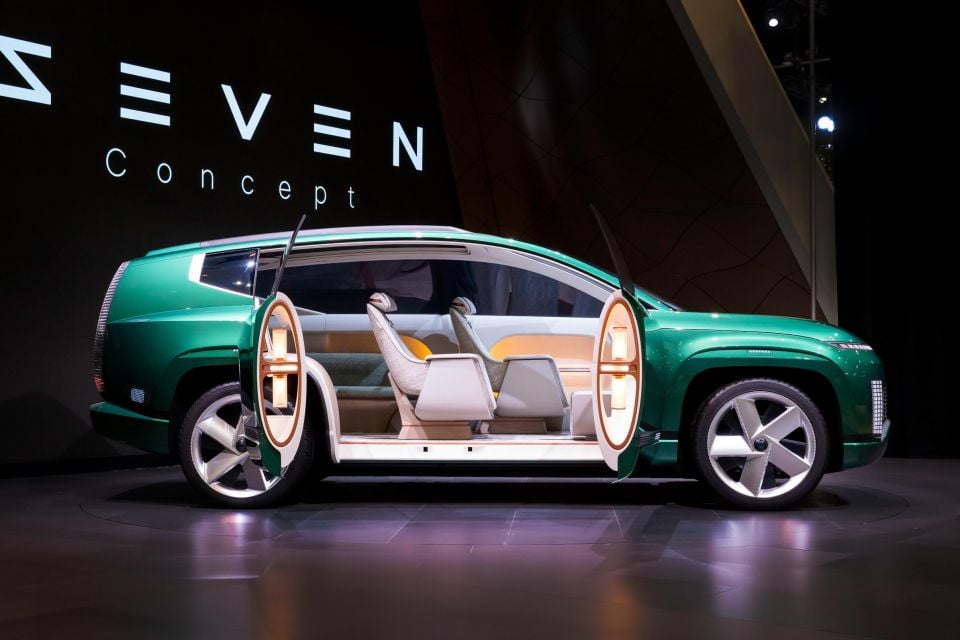
Previewed by the Seven Concept in 2021, the Ioniq 7 will be the brand’s sister car to the Kia EV9, also a three-row full-size SUV based on the Hyundai-Kia E-GMP dedicated electric car platform.
With 3200mm wheelbase, Hyundai says the interior of the Seven offers a “completely new dimension of space”. There are three rows of seating, and the flat floor combines with a tall, flat roof to double down on the lounge-like interior aesthetic established by the Ioniq 5.
Like other vehicles in the Ioniq range, the production Ioniq 7 should also make use of recycled and sustainable materials in its production – such as the upholsteries, plastics, and paints.
Hyundai is yet to show the Ioniq 7 in production form as yet, but we’re expecting the brand’s new flagship SUV to debut sometime later this year, ahead of an Australian launch in the new year.
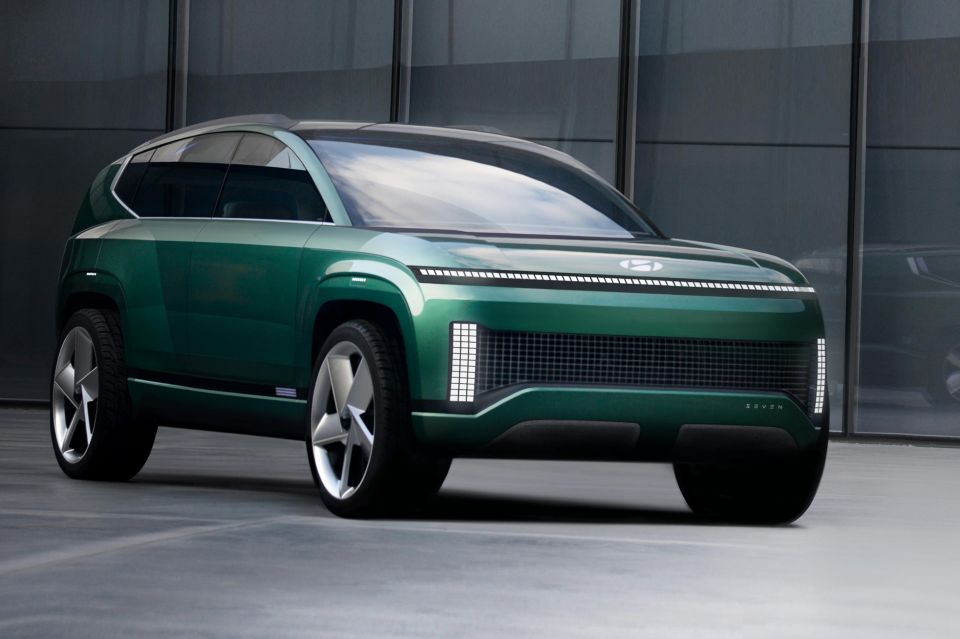
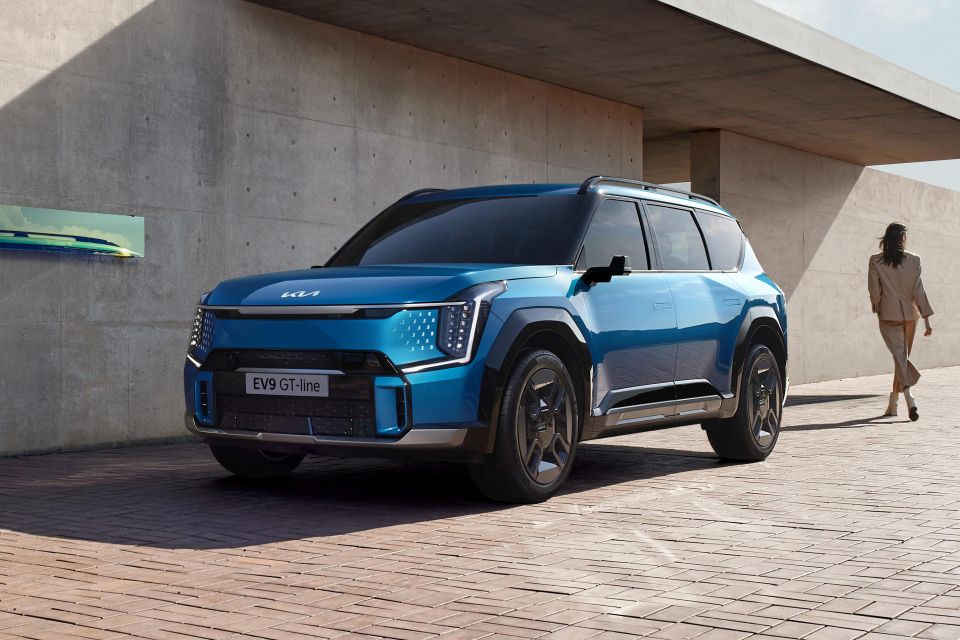
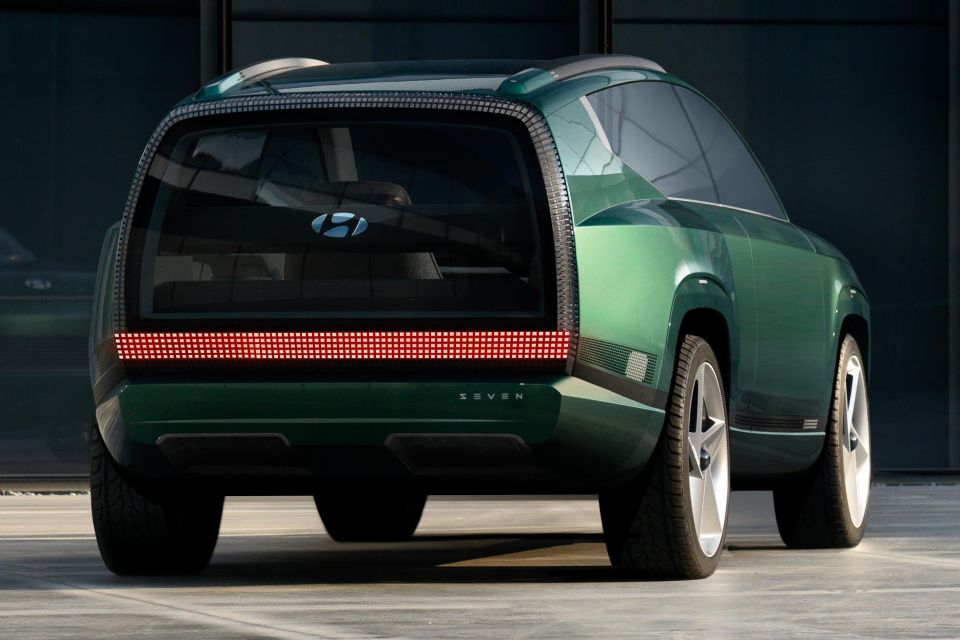
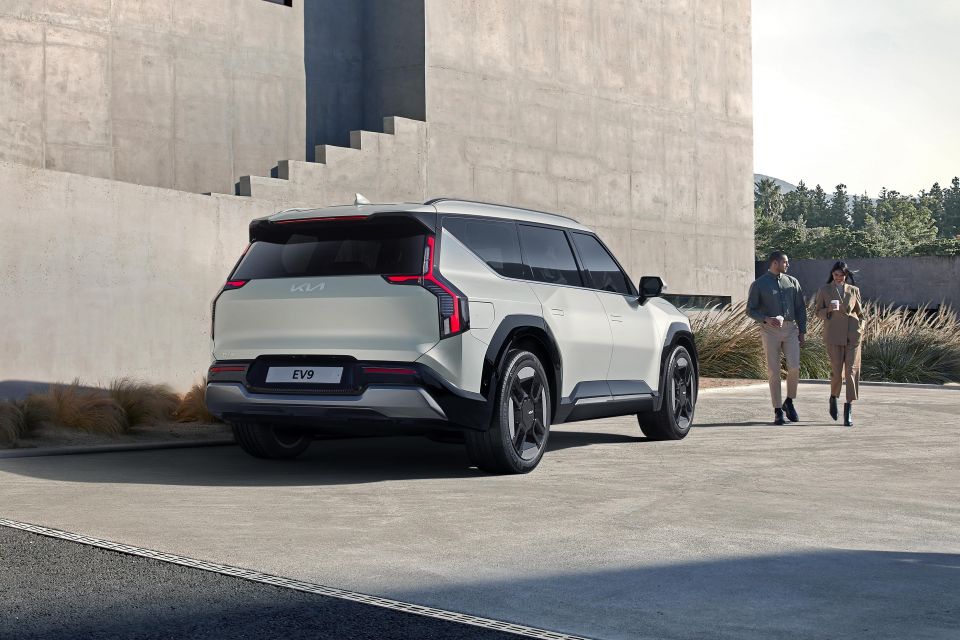
The Seven Concept quoted “more than 480km” in driving range, though with undisclosed drivetrain specs. While Hyundai hasn’t confirmed further details, the new Kia EV9 should offer some strong clues, given the shared underpinnings.
A Boost feature is available on the Kia Connect store for dual-motor versions, increasing torque to 700Nm and cutting the 0-100km/h time to 5.3 seconds. Kia claims the EV9 will offer towing capacity of up to 2500kg.
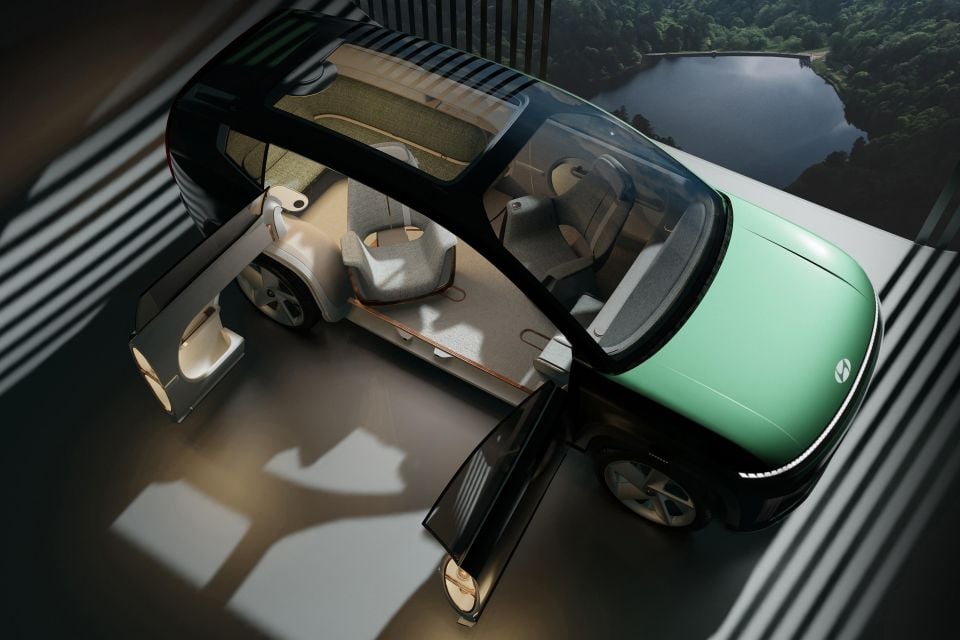
All bar the rear-wheel drive Standard will use a 99.8kWh battery, with the base model using a smaller 76.1kWh battery.
Kia has only published a range figure for the rear-wheel drive Long Range model with 19-inch wheels, which works out to 541km on the stricter WLTP cycle.
The EV9 offers 800V ultra-fast charging capability like other vehicles on the E-GMP platform, and Kia says 239km of range can be added in 15 minutes.
It can also be used to power appliances thanks to a Vehicle-to-Load (V2L) function, which puts out up to 3.68kW of power.
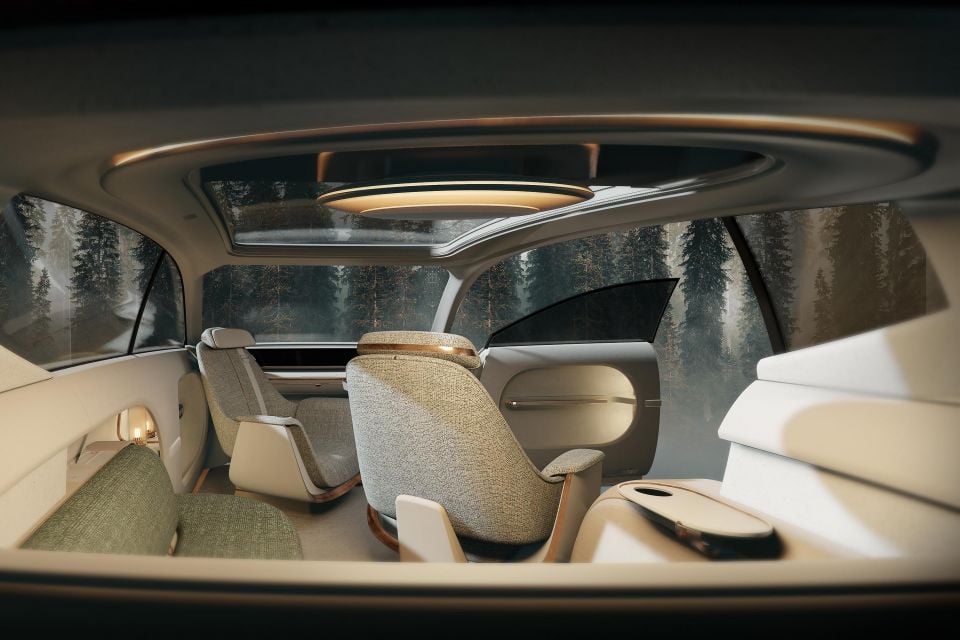
Hyundai Australia wants to sell 3000 units across the Ioniq 5 and Ioniq 6 nameplates in 2023 – including the Ioniq 5 N due before the end of this year – well up on the 756 Ioniq 5 vehicles registered for the 2022 calendar year. With the arrival of the Ioniq 7 in 2024, that yearly volume is expected to double to 6000 units.
The brand’s local division says supply is opening up, meaning it no longer has to sell its E-GMP models in ‘drops’ as it has done with the Ioniq 5 in the past. There’s no more geofencing either, meaning anyone in Australia can now buy an Ioniq 5 or Ioniq 6 using the online sales portal, and take delivery from your preferred ‘delivery partner’.
Speaking of, Hyundai wants to have up to 90 delivery partners across 90-100 dealerships across Australia by the end of next year. Currently, that tally is sitting at 24 partners.
Stay tuned to CarExpert for all the latest.
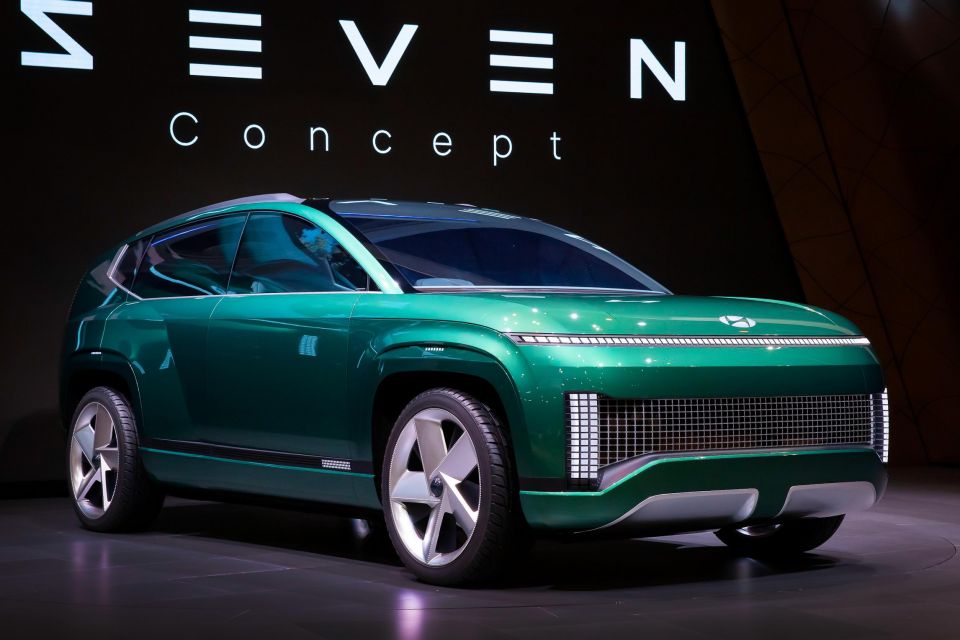
MORE: 2023 Hyundai Ioniq 6 review MORE: Hyundai Seven Concept revealed
Where expert car reviews meet expert car buying – CarExpert gives you trusted advice, personalised service and real savings on your next new car.
James Wong is an automotive journalist and former PR consultant, recognised among Australia’s most prolific motoring writers.


Max Davies
5 Hours Ago


Damion Smy
14 Hours Ago
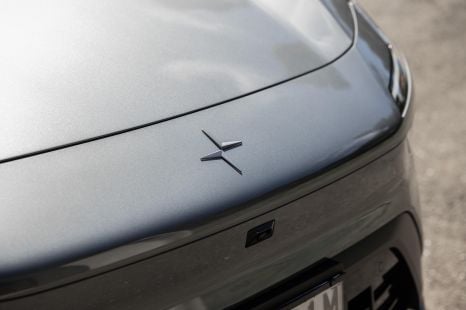

Damion Smy
14 Hours Ago
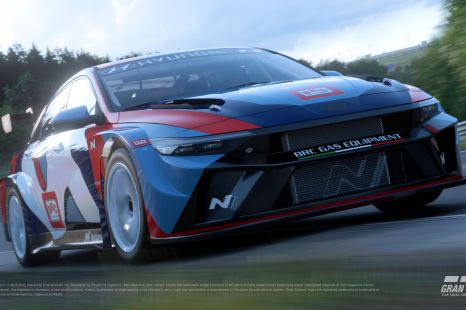

Damion Smy
16 Hours Ago
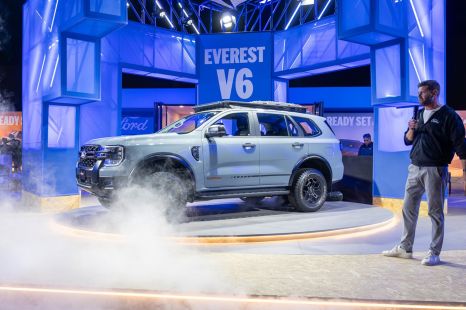

Damion Smy
18 Hours Ago


CarExpert.com.au
20 Hours Ago